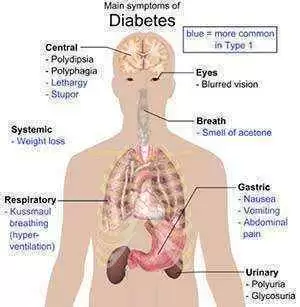
Celiac.com 04/18/2017 - Even though gluten-free diets are more popular than ever, researchers still don't have much good data on gluten intake and long-term health.
A team of researchers recently set out to assess three large cohort studies, the Nurses' Health Study (NHS, n=69,276), the NHSII (n=88,610), and the Health Professionals Follow-Up Study (HPFS, n=41,908), and to estimate gluten intake using a validated food-frequency questionnaire collected every 2-4 years. The research team included Geng Zong, of the Harvard T.H. Chan School of Public Health, Boston, MA; Benjamin Lebwohl, Celiac Disease Center, Department of Medicine, Columbia University College of Physicians and Surgeons, New York, NY; Frank Hu, Laura Sampson, Lauren Dougherty, Walter Willett, Andrew Chan, and Qi Sun, of the Harvard T.H. Chan School of Public Health in Boston, MA.
Celiac.com Sponsor (A12):
The team defined incidental Type 2 diabetes as physician diagnosed diabetes, and confirmed with supplementary information. Their results showed that average gluten intake, give or take standard deviation, was 5.83±2.23, 6.77±2.50, and 7.06±2.76 grams/day in NHS, NHSII, and HPFS, respectively. That gluten intake cam, mainly from carbohydrate sources, especially refined grains, starch, and cereal fiber (Spearman correlation coefficients > 0.6).
The team confirmed 15,947 Type 2 diabetes cases over 4.24 million years of follow-up time. In all three groups, the team observed an inverse connection between gluten consumption and Type 2 diabetes risk. The multivariate adjustment (table), and hazard ratio (HR, 95% confidence intervals [95%CI]) comparing extreme quintiles were 0.80 (0.76, 0.84; P<0.001).
The connection dissipated slightly after adjusting for cereal fiber (HR [95%CI]= 0.87 [0.81, 0.93]), but not for other carbohydrate components.
For study participants under 65 years of age, and without major chronic diseases, changes in gluten intake were not associated with weight gain in multivariate adjusted model. Overall, the 4-year weight change (95%CI) was 0.08 (-0.06, 0.22; P=0.25) in NHS, -0.05 (-0.18, 0.08; P=0.43) in NHSII, and 0.36 (-0.24, 0.96; P=0.24) HPFS for each 5 grams increase in gluten intake.
These findings suggest that gluten intake likely doesn't cause or promote Type 2 diabetes or excess weight gain.
Reducing dietary gluten is unlikely to help prevent Type 2 diabetes, and may actually reduce consumption of cereal fiber or whole grains that help to lower overall diabetes risk.
Source:






Recommended Comments
There are no comments to display.
Create an account or sign in to comment
You need to be a member in order to leave a comment
Create an account
Sign up for a new account in our community. It's easy!
Register a new accountSign in
Already have an account? Sign in here.
Sign In Now